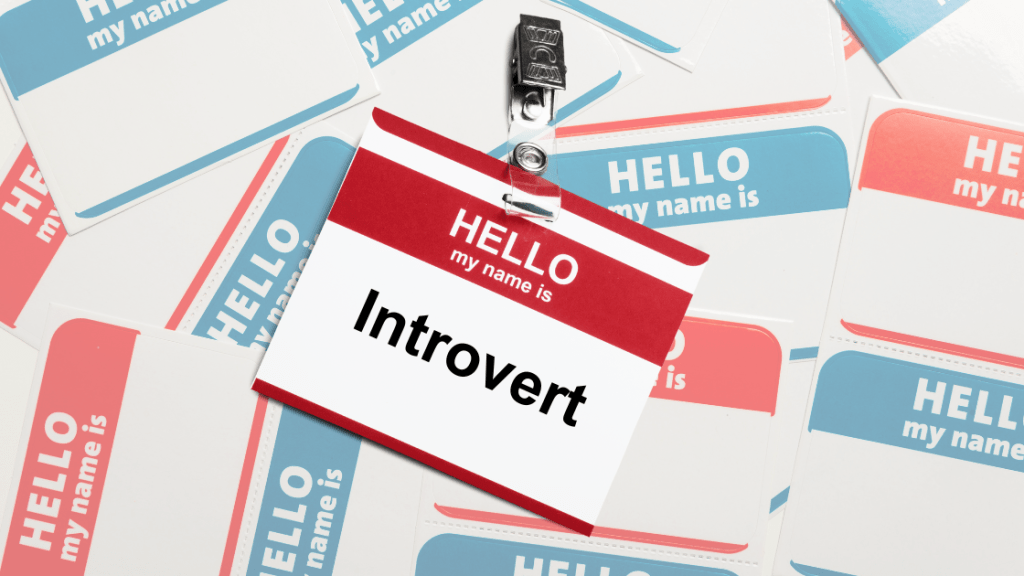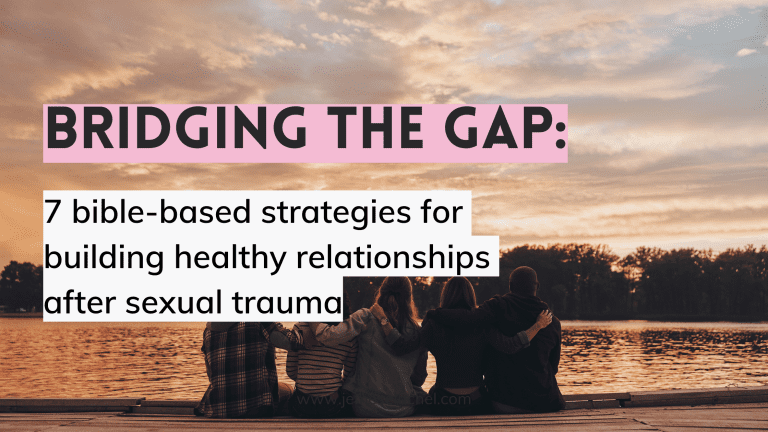
Unmasking the Deception:
The Truth About Introversion and Trauma
I hate to break it to ya, but that title of “introvert” you’ve been claiming all these years is probably a lie.
Before you start gathering stones, hear me out. As a seasoned expert in the field of sexual trauma and psychotherapy, I’ve had the unique privilege of peeking into the lives of countless women. Each time, I witness their beautiful process of shedding the cocoon of trauma and blossoming into their true selves.
Throughout my experience I’ve seen a consistent pattern emerge: Women who initially display introverted tendencies, peering solitude and appearing reserved, gradually transform into more open and socially outgoing beings. This has led me to question: Are you truly an introvert?./
Well, if I may be so bold, my assessment is a resounding “no.”
Don’t get me wrong, we all have proclivities. God has formed each one of us uniquely. But, there is a distinction between your natural predisposition and adopting the term “introvert” as a fixed personality trait.
Time and time again, clinical evidence has demonstrated that women who’ve experienced sexual trauma (along with other mental health and spiritual challenges that often accompany it) undergo a profound transformation. They discover a whole new world of boldness, sociability, and depth once they receive deliverance and healing from the wounds of trauma.
It’s like all these years they’ve slapped on the “introvert” name tag, wearing it as their new identity, not realizing all it was simply a protective mask, a convenient shield, and a clever disguise created by trauma to keep them small and hidden.

Check Yourself:
Exploring the Origins of Introversion
Time does not heal all wounds. The truth is, when trauma goes unchecked, it festers in the background, often deceiving you into believing that identifying as an introvert is a safer way to navigate the world. It convinces you that embracing your authentic self exposes you to more pain. Subconsciously, you adopt the phrase, “Oh, I’m just an introvert” as a defense mechanism. If this conversation is triggering or if you currently identify as an introvert, I encourage you to sincerely question:
- Am I using introversion as a way to avoid facing past experiences or future pain?
- Do I feel unsafe in my own body and using this label as means of keeping me secure from being hurt again?
By acknowledging this possibility, you open yourself up to the healing process and the opportunity for the Lord God to mend the protective shell that trauma has created, allowing you to truly be yourself and experience freedom.
If there is even a chance that this applies to you, it is time to dig deep and explore this more.
The Deceptive Mask of Trauma
Trauma has a way of distorting our perception of ourselves. It plants seeds of fear, self-doubt, and a desperate need for safety. In its cunning deception, trauma convinces us that adopting the introvert label is the only way to shield ourselves from further harm. But deep down, beyond the layers of trauma, lies your true personality waiting to be discovered and celebrated. The traumatized brain prioritizes safety, even at the cost of our well-being, leading to the formation of complex strategies and a multitude of thoughts and emotions along with it. However, as Christians, we’re called to walk by faith and not be solely governed by our thoughts and feelings. Jesus ought to be our source of security and safety, not a self-imposed personality trait or an uncertain label.

You’re Not an Introvert, Here’s Why
Reason #1: The Bible doesn’t call you by that name
Scan the scriptures and you’ll unlock a treasure trove of God’s promises for your life, as well as things He has to say about you specifically. It literally is the Book of Life and contains all the answers that you could ever seek for how to live. And believe it or not, there’s a lot of names in there for you like Beloved (Galatians 3:26), Friend of God (John 15:13), Overcomer (1 John 5:4). It reminds you that you are made in the image of the Holy God Himself.
But no where does it call you introvert.
Immediately, I think of Moses, who, if we’re being honest, would probably have been considered an introvert in his time. Yet, upon examining his life, we find that Moses sought solitude not because he was shy or introverted, but because he was driven by fear and traumatized after committing murder.
Moses wasn’t defined by introversion; he was driven by fear and the need to escape. Similarly, identifying as an introvert can sometimes cause us to retreat from the opportunities and open doors that the Lord has provided. And simply put: it’s time to reconsider. Are you truly an introvert? I’m sorry, sis, but I don’t buy it. Let’s not allow ourselves to be defined by a label that doesn’t reflect our true identity in Christ. The Bible doesn’t use that term to describe you, so neither should you.
Reason #2: It’s a Coping Mechanism vs. Inherent Personality
Pop psychology claims that introversion is an inherent personality trait characterized by a preference for solitude and introspection. However, for sexual trauma survivors, introverted tendencies often arise as coping mechanisms to protect themselves from further harm. In this context, it’s crucial to understand that these tendencies are a response to trauma rather than a fixed aspect of one’s true personality.
As Christians, surrendering to Jesus as the Lord of our lives means yielding to His Lordship over every aspect of our being, including our brains, the traumas we’ve endured, and even our personalities and coping strategies. Let us shift away from self-induced coping mechanisms that keep us focused on ourselves, and instead rely on the Lord, allowing our faith in Jesus to be the greatest coping mechanism we could ever have. It is crucial to distinguish between the adaptive behaviors developed in response to trauma and our true personality, which can only be discovered and nurtured through the transforming power of God’s love.
Reason #3: You were made for social connection and fulfilling relationships
Identifying as an introvert can sometimes lead to isolating oneself from social situations that hold potential blessings from God. However, we were created to embrace social connection and cultivate fulfilling relationships, as highlighted in 1 Corinthians 12:15-26. God’s design for us includes fellowship, love, and support, which we can experience through genuine connections and meaningful relationships.
While solitude has its benefits, it is not meant for us to remain in isolation indefinitely. Jesus sought solitude for communion with God, yet He consistently returned to engage with the community and make an impact. It’s important to recognize that isolation plays into Satan’s tactics of manipulation, keeping us away from the very people who may hold the solutions we need. Instead of embracing introversion as our sole identity, let us challenge this notion and step out of our comfort zones, engaging in healthy social interactions. By doing so, we open ourselves up to the blessings and growth that come from being part of a supportive community.

Conclusion:
It’s Time to Rediscover Your True Identity
Sweet friend, God created you with unique gifts, passions, and a purpose. But untreated trauma can cloud your understanding of who you truly are. Don’t allow untreated trauma to define who you are or limit your potential. Through therapy, faith, and self-discovery, you can break free from the introvert label and step into the fullness of your true personality. Remember, you are fearfully and wonderfully made by God, and He desires to see you flourish. Embrace the journey of healing, knowing that your true self is waiting to be unveiled and celebrated.
Author Bio:
 Jemese LaChel is a Christian trauma therapist, faith mentor and owner of Grace Abides Christian Counseling. She is passionate about helping women overcome the lies of trauma and embrace their true identity which is found in Jesus Christ. With years of experience in guiding women towards healing and personal growth, she is dedicated to empowering women to break free from the chains of trauma and walk confidently in freedom Jesus bought for them. Connect with Jemese on Instagram @jemeselachel and be part of our empowering community of women.
Jemese LaChel is a Christian trauma therapist, faith mentor and owner of Grace Abides Christian Counseling. She is passionate about helping women overcome the lies of trauma and embrace their true identity which is found in Jesus Christ. With years of experience in guiding women towards healing and personal growth, she is dedicated to empowering women to break free from the chains of trauma and walk confidently in freedom Jesus bought for them. Connect with Jemese on Instagram @jemeselachel and be part of our empowering community of women.








